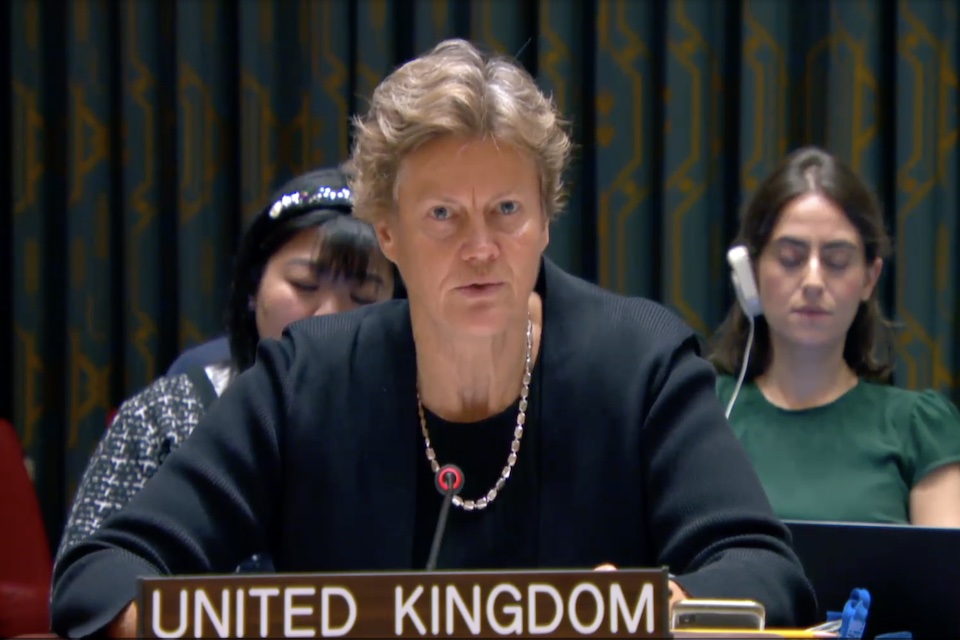The UK is unwavering in our commitment to provide aid to the people of Afghanistan: UK statement at the UN Security Council
Statement by Ambassador Barbara Woodward at the Security Council meeting on Afghanistan.

Thank you President.
I join others in thanking SRSG Otunbayeva, Executive Director Sima Bahous and Karima Bennoune for your briefings.
Twenty-two years on since Kofi Annan鈥檚 Nobel speech, which the SRSG referenced, and over two years since the Taliban鈥檚 seizure of power, our dominant concern remains the Taliban鈥檚 systematic assault on the rights of women and girls continues.
There have been over 50 decrees curtailing women鈥檚 ability to participate in public, political, economic and social life and barring girls from secondary schools and higher education.
These decrees have also impacted the UN鈥檚 ability to get aid to those who need it most. This at a time of dire need - two thirds of the population of Afghanistan require humanitarian assistance.
Forty per cent are facing acute food insecurity 鈥� a number that would be far higher without families and communities in Afghanistan supporting each other in whatever ways they can.
Afghanistan remains one of the poorest and climate vulnerable countries in the world. Its prospects further dimmed by a significant 鈥榖rain drain鈥� as a result of migration, persecution and uncertainty.
We note the progress the Taliban has taken in tackling ISKP and we underscore the importance of continued action against terrorist groups within Afghanistan and their affiliates.
The people of Afghanistan remain our priority 鈥� so what can we do?
First and foremost we need to take urgent action to avert a humanitarian catastrophe as winter approaches. The UK has contributed over half a billion dollars to address the humanitarian crisis since April 2021 and we call on fellow Member States to step up support where they can. But as we heard from SRSG Otunbayeva, the UN鈥檚 revised Humanitarian Appeal for Afghanistan for 2023 is only 28% funded.
The UK is unwavering in our commitment to provide aid to the people of Afghanistan and to support UN efforts. We are clear, however, that male only delivery chains do not and cannot achieve that and we support calls for closer monitoring of aid delivery.
Second, the international community should remain united in our message to the Taliban. We have set out our expectations in consecutive Council resolutions on humanitarian access, cutting ties with terrorists, respect for human rights and inclusive governance.
The Taliban should be clear on the costs of their policies: international recognition should not be on the table; sanctions relief should not come. And Afghanistan cannot be self-reliant when fifty per cent of its people are excluded from society. Without inclusive governance and society, peace and stability will remain elusive.
Finally, we look forward to Ambassador Feridun Sinirlioglu鈥檚 independent assessment, which will provide a valuable basis for a more coherent, strategic international approach as we look to build on the Secretary-General鈥檚 conference with special envoys in Doha and other regional initiatives, in which the UK will continue to play its part.